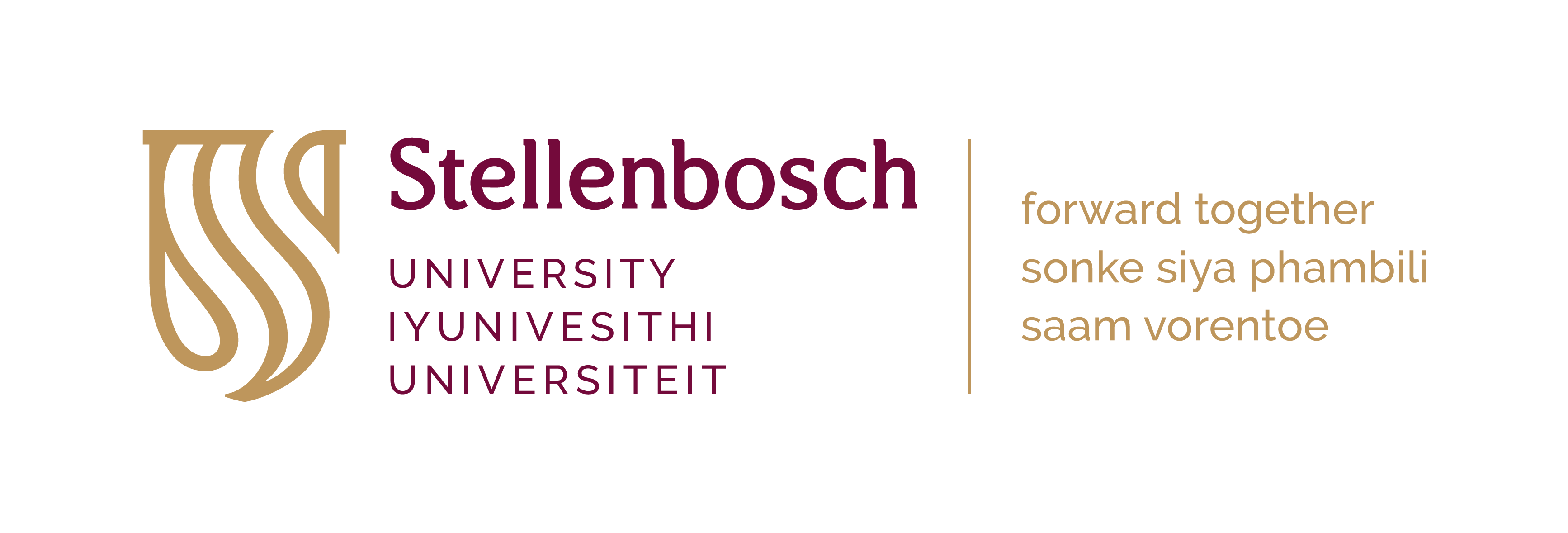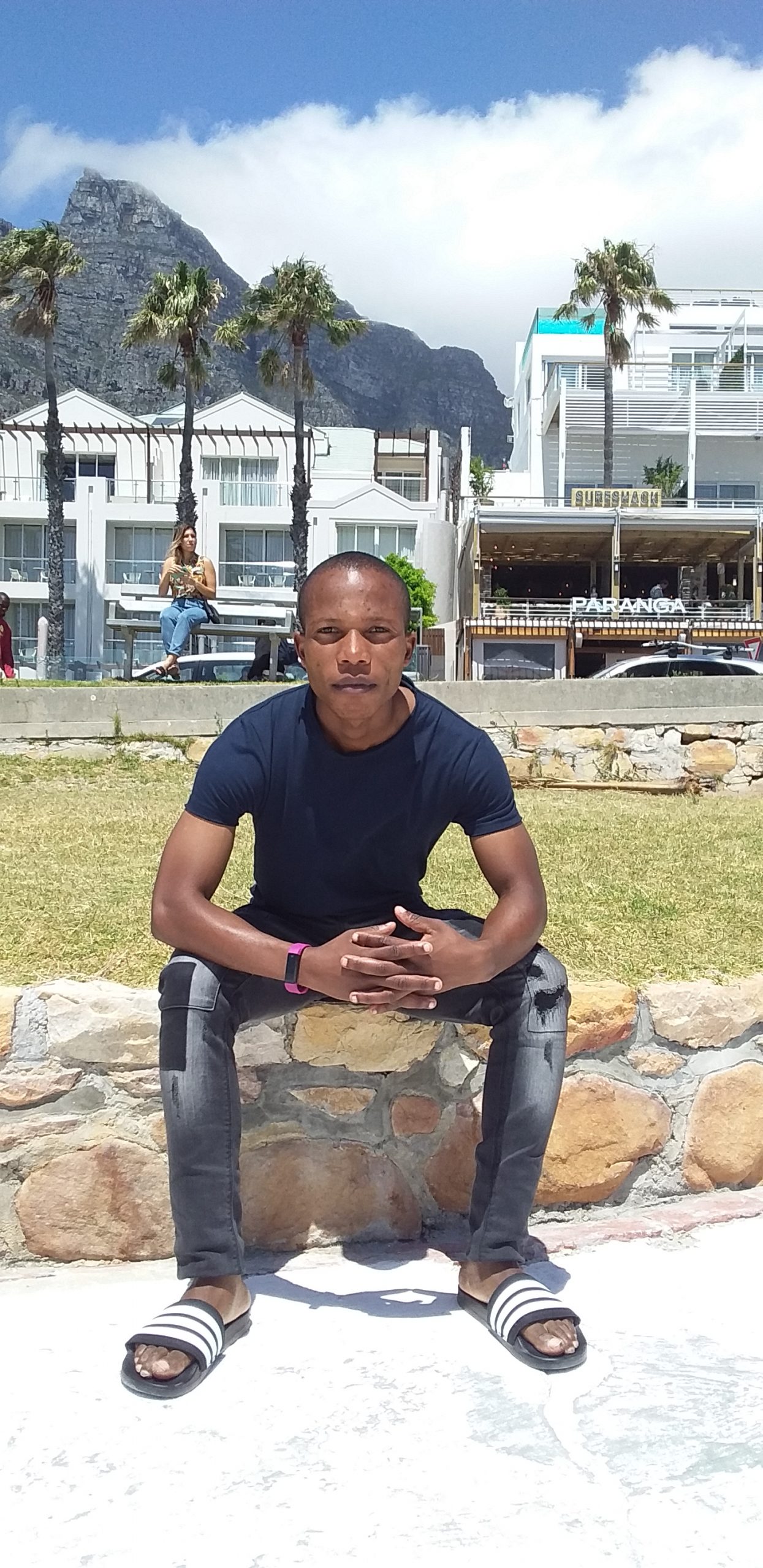[:en]Meet Mr Tumelo Maila, a masters candidate within the TB Drug Development Research Group at Stellenbosch University’s Division of Molecular Biology and Human Genetics, Faculty of Medicine and Health Sciences.
In celebration of Youth Month 2020, the Division of Molecular Biology and Human Genetics is paying tribute to young researchers within our institute. We share heart-warming stories of our students whose lives give us great hope for the future of South Africa. We thank these students for volunteering to tell us a little about themselves and their research.
Tell us briefly about your background?
I grew up in a tiny village called Luckau in Limpopo. I am the second born at home in the family of seven children. I attended both primary and high schools in my home village and completed my matric in 2013. I started my undergrad studies in 2015 at the University of Limpopo till 2018 where I have obtained my Medical Science degree (equivalent to honours).
Why did you choose your field of study – what or who inspired you? Is this what you envisioned for yourself growing up?
I chose this field of study because of the passion and understanding the diversity of the biology and another reason being the shortage of medical scientists in our country, I wanted to be a professional medical scientist one day. I was inspired by Jennifer Doudna, an American biochemist, involved in genome editing (CRISPR technology). In my High school studies, I was passionate in Life Sciences, for that, I wanted to have a better understanding of biology both in the research and industrial fields, especially when human health is concerned.
What is your research focus on?
Targeting the MEP pathway, one of the essential Mycobacterium tuberculosis metabolic pathway, for the development of antitubercular drugs, specifically focusing on the first enzyme (dxs) within the pathway. In addition to that, the project will also validate CRISPRi gene knockdown as a valuable resource in drug discovery. It is expected to provide clues on how much DXS enzyme inhibition is required to elicit the desired phenotypic outcomes. 2-C-Methyl -D-erythritol-4-phosphate (MEP) pathway is essential for the growth of Mycobacterial species including pathogenic M. tuberculosis strains. Its absence in humans makes it attractive as a potential target for the development of new effective TB drugs. Hence, a need for the development of new very effective drugs with unique mechanisms of action that can accelerate treatment time and reduce drug resistance.
How can your research help to improve Africa and/or the lives of its people?
The project fills the gap in TB drug discovery by synthesizing novel phosphonates as anti-tubercular agents. The successful phosphonates can be significant towards accelerated TB treatment as inhibitors of the MEP pathway are expected to synergize very well with some of the currently used clinical TB drugs such as bedaquiline and isoniazid, pyrazinamide.
What obstacles did you have to overcome to get where you are today?
During my matric, we never had a career exhibition lessons in terms of understanding and knowing the diversity of our stream, especially when it comes to choosing your career path at the tertiary level. I have overcome this situation through the support and guidance of my parents, my older brother (he was already at the university) and some of my teachers. In 2014, I was registered at the University of Johannesburg (Doornfontein Campus), because of the challenges that I was facing I had to deregister and consider taking a gap year. Some of the reasons include having insufficient funds for my fees and accommodation, whereby where I was staying there was no electricity and I was using a train as my daily transport, for that, it was not easy for me to continue with my studies especially when it was the first time being far from home.
During my gap year, I had few temporary jobs, just to raise enough money for the fees, however, my home situation didn’t change, we were still struggling financially and in 2015 I had to consider University of Limpopo since I had a brother and few people whom I know that might help me with whatever I would be struggling with. In 2019, after completing my first degree, I considered to continue with my studies, however, it was difficult to find accommodation for my postgrad studies. One of my friends had to offer me the temporal accommodation for couples of days while I am in the process of finding my own accommodation.
If you could invite any three researchers (alive or dead; local or international) to a dinner party, who would you pick and why?
Dr Gabriel Mashabela: He is also my supervisor, mentor, the person who always guide me academically and makes research more interesting.
What is your favourite quote/saying?
“The power to control our species’ genetic future is awesome and terrifying. Deciding how to handle it may be the biggest challenge we have ever faced.” – Jennifer Doudna
Any advice for young people who are considering a career in STEM?
They should be passionate about their work and strive to learn and understand the diversity of science as the future scientists.
What do you hope to achieve in the future?
Being a professional medical scientist and assist young people especially less privileged students in their academics to make the right decision with their career paths.[:]

